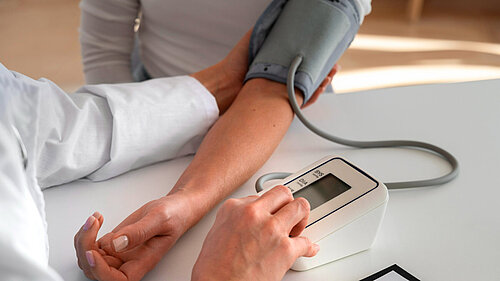Fairly reforming Capital Gains Tax to save our NHS

We have a fair plan to fund a rescue package for our health services.
Our NHS is in crisis. The Conservatives have failed to deliver the new hospitals they promised and left people waiting hours for an ambulance, weeks to see a GP or months for urgent cancer treatment.
That’s why, at this election, the Liberal Democrats are putting forward a bold £5 billion-a-year rescue package for our NHS. That includes funding to:
- Increase the number of GPs by 8,000, so that everyone can get an appointment when they need one.
- Boost cancer survival rates to among the highest in the world, by investing in cancer research and treatment.
- Improve mental health services, including talking therapies and walk-in hubs for young people.
- Bring dentists back to the NHS from the private sector by fixing the broken NHS dental contract.
Our plan is fully funded. After all, the Conservative Government has shown all too clearly the damage and pain caused by fiscal irresponsibility. So throughout our manifesto, all day-to-day spending commitments are funded by tax revenue, not borrowing.
But after years of damaging Conservative tax rises, and in the middle of a cost-of-living crisis, it would be wrong to ask ordinary families and pensioners to pay more to clear up the Conservatives’ mess.
That is why our NHS rescue package is funded by fairly reforming Capital Gains Tax, to close loopholes exploited by approximately the top 0.1% wealthiest individuals in the country.
How would it work?
Right now the capital gains system is broken for everyone.
Most people are paying far too much when they sell a property or a few shares, because the system doesn’t account for inflation over the time they’ve owned them. At the same time, a tiny number of super wealthy people – roughly the top 0.1% – exploit it as effectively one giant loophole, to avoid paying the rates of income tax everyone else does.
According to the latest HMRC statistics, 14,000 multi-millionaires used the loophole to pay less than half the top rate of income tax on their combined £60 billion income.
We want to reform the whole system to make it much fairer – cutting taxes or keeping them the same for the vast majority of people, while making sure the super wealthy can’t avoid paying their fair share.
Margaret Thatcher’s Chancellor Nigel Lawson reformed Capital Gains Tax along very similar lines in 1988, arguing that having lower rates than income tax was “hard to justify” and “inevitably creates a major tax avoidance industry”.
What are the details?
Under our plan, there would be three rates of Capital Gains Tax, like there are for income tax: 20% (for gains up to £50,000), 40% (between £50,000 and £100,000) and 45% (over £100,000). Unlike now, where your Capital Gains Tax rate is determined by adding together your income and capital gains, the rate would be based solely on your gains.
The capital gains tax-free allowance would go up from £3,000 to £5,000, and crucially, we would also introduce a new “inflation allowance”, so that any gains that are purely the result of inflation are not taxed at all. There would also be a targeted relief for small businesses.
How much would it raise?
We estimate that these reforms would raise £5.2 billion a year in 2028-29, to invest in our NHS and improve local health services for everyone.
Sign up for email updates...